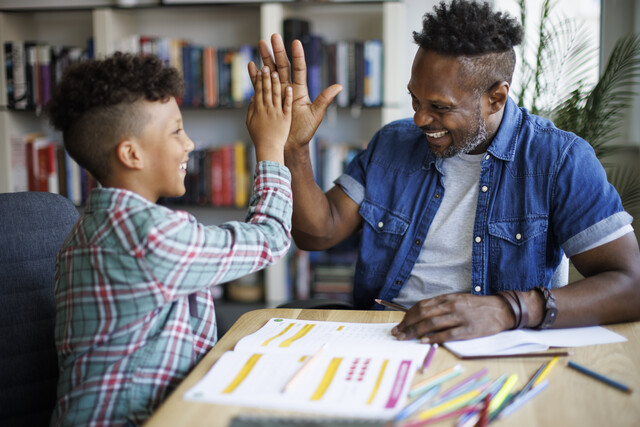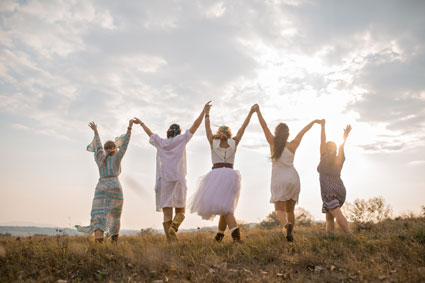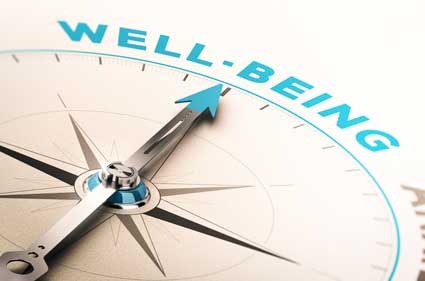The focus of this article is to provide a solid foundation in understanding what etiquette is, how it differs from "manners," and the nuances of teaching this concept to children and teens. Etiquette is far from being a new concept, but is not, by any means, an outdated, obsolete tradition. Rather, the importance of decorum in our modern world is more meaningful than ever. Having social graces will give children and teens a great advantage. As our contemporary society moves further and further away from practicing good manners in everyday life, those who have the ability to present themselves well socially, are able to be polite, and know how to treat others with respect will be those who possess an extraordinary skill. The child or teen who has these qualities will stand out among his or her peers. These traits will be valuable throughout their lives and will assist them if they choose to take positions of leadership and influence. However, no matter what a child or teen chooses to do in the future, the knowledge of proper etiquette will help them flourish in all situations. Taking the time and the effort now, while they are young, will reap them great rewards for a lifetime.
What is etiquette?
Manners, social skills, politeness, civility, graciousness, cordiality, decorum, correctness, and respect are all terms used to describe etiquette. However, rather than being any one of these individual things, etiquette is a combination of these qualities. It is the ability to treat others with respect, it is also having self respect; additionally, it is the knowledge of the correct things to do in social situations. Many would believe that etiquette is merely a quality extended to others when "in public," but in reality, it is a knowledge that, once learned, is carried into one's private and family life as well. A huge misconception is that those who have etiquette are reserved, stuffy, boring, and not much fun to be around. Not true at all! Etiquette should never be pretending to be someone you are not. The only exception to this rule is using correct behavior in serious situations. If you are an upbeat person who is always making jokes, that is fine, however, if you are at a funeral or another serious event, making jokes is not appropriate and shows a lack of respect for those who are grieving. Etiquette is always being yourself, but also being mindful of others.
Why is etiquette so important?
We often hear the term, "Don't judge a book by its cover," however, the truth of the matter is, we all make assumptions about others based on our first impressions and ongoing interactions with them. Those who treat us (and others) with respect, are usually those we want to spend more time with. They are people we enjoy being around, and because we like to be in their presence, we grow to trust them. Does this mean that having good manners makes one a good person? No, it does not. Neither does having bad manners make one a bad person. However, having good etiquette will provide one with the opportunity to meet, and be comfortable with, a variety of people in a variety of circumstances. Etiquette also has the effect of making others feel at ease.
The answer to this question is yes -- and no. Having good manners is only a part of etiquette. Saying "please" and "thank you," having good table manners, sending thank you cards, and listening to people when they speak are the "mechanics" of etiquette. Etiquette goes much deeper than knowing the procedure of writing a good thank you note, or learning the correct way to shake a person's hand. It is certainly important to learn the correct methods of etiquette, but it is equally important to practice the methods often enough that they become ingrained behaviors. Etiquette, when practiced over time, will become second nature. It will fit comfortably, like a perfectly sized shoe.
Can etiquette be taught to children and teens?
Etiquette is just as relevant today as it was 50 years ago, indeed, it may be more important in our modern world, since less people practice good etiquette than in the past. Having good etiquette will benefit a child or teen throughout his or her lifetime; it is a set of skills that will be highly appreciated by those they come in contact with, now and in the future. Good manners are important, but developing good etiquette is more than knowing the "mechanics." Having these methods ingrained so they are second nature, like brushing ones teeth, or closing a door when leaving the house is the ultimate goal of good etiquette.
The way you behave when you are out in public with friends and family reflects on you and your parents. Whether you are a child out with family for dinner, or a teen who is out with friends at a party or movie, your actions and behaviors will be observed by others. By no means are we suggesting that you should ever be anything but yourself, or to be fake or phony, but you should not act in a way that disrespects others or yourself. It is great to be yourself, it is not so great to tread on the rights of others while doing so. This article will address some situations you might encounter when out in public, and provide you with some basic rules of etiquette concerning those instances.
Appropriate public behavior
Have you ever been to a movie and had to deal with a group of people (adults, teens, or children) who were making so much noise you couldn't enjoy it? That is an example of improper etiquette in public. When you are out in public, you need to be mindful of the rights of others. Whether it is a movie theater, a sports game, a play, a party, a restaurant, or a concert, you should enjoy yourself, but not at the expense of others who are also trying to enjoy themselves. When you are in public, you are "sharing" that public place with other people. Is it okay to yell at a baseball game when your team scores, or is scored on? Yes, of course. What is not okay is to scream obscenities, throw things, or hit other people. It is also not okay to shove, push, cut in line, or be rude to strangers. It is fine to defend yourself, and/or those you are with, if you encounter others acting in these ways. However, draw the line at getting into a "brawl" or dangerous fight with someone who is violent or hostile because you are indignant over their bad behavior. It's just not worth your effort to deal with people who won't hear you anyway. Let the security guards or other personnel handle out-of-control people.
How to distance yourself from sticky situations
Sadly, no matter how hard we try to be polite to others and behave in a way that considers their rights, there will always be people who have zero regard for other people. At some point in your life you will encounter people who are rude, obnoxious, mean, and downright violent. There may not even seem to be a good reason for the behavior; don't bother trying to figure out why strangers behave badly, just distance yourself from the situation.
What not to do:
-
Don't leave the game and watch from the balcony.
-
Don't yell back or get into an argument.
-
Don't hit anyone.
-
Don't stay in the area if the situation is turning violent.
What to do:
-
If you are a teen, get an usher, show him or her your tickets, explain the situation. Step back and let them do their job. Get your seat back. If the person/people yell at you on their way out of the arena, ignore them or just wave a fond farewell.
-
If you are a younger child with an adult chaperon, let the adult handle the situation. If you are a child with other kids, do what is suggested for teens.
-
If the situation seems to be getting violent, you and your companions should leave right away.
Scenario Two:You are at the movies with your friends. You've all been waiting to see this show, you get there early, get your snacks, find great seats, and chat and watch the previews while you wait for the movie to begin. The movie starts and a group of loud kids comes in. They are talking very loudly. They sit behind you and your friends and immediately put their feet on your seats, hitting you in the head with their shoes. As the movie progresses, they continue to talk loudly, throw popcorn and, in general, are annoying you and your friends so much that you can't enjoy the movie at all.
- Don't give up and leave the movie to watch another time.
- Don't stand up and start screaming at them.
- Don't throw popcorn back.
- Don't get involved in a violent argument or fight.
- Turn around and say calmly, and in as friendly a tone as you can manage, "Can you please keep it down, we/I can't hear the movie at all." Throw in a smile and a thank you.
- If they ignore you and continue to be obnoxious, or become angry and rude, get up, find an usher, tell him or her what is going on and let them handle it. If they don't want to handle it, ask for a manager. If there is no manager who will deal with the problem, ask for a refund of your money. If they won't give you a refund, call you parents and ask them to pick you up; explain what happened and let them handle it.
- If the situation seems to be getting violent or hostile, you and your companions should leave right away.
Your rights to public place enjoyment






























